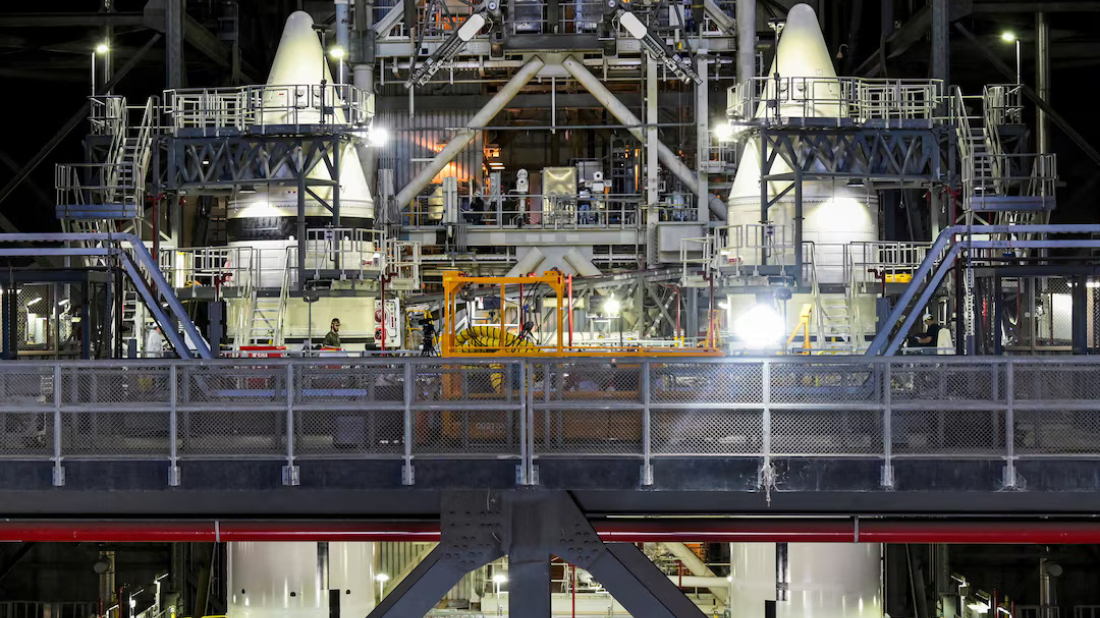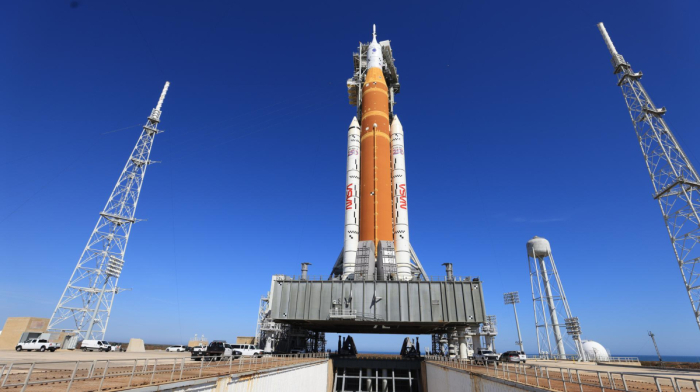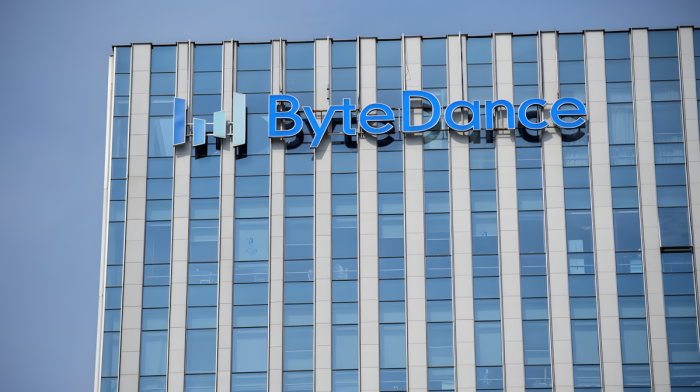NASA has announced that it will reopen bidding for its flagship U.S. moon landing contract, citing mounting delays in Elon Musk’s SpaceX Starship lunar lander project.
The decision clears the way for competitors such as Jeff Bezos’ Blue Origin to compete for the high-profile mission to return astronauts to the Moon for the first time in over 50 years.
NASA’s acting chief, Sean Duffy who also serves as U.S. Transportation Secretary told Fox News that the agency would “open the contract up,” saying, “I think we’ll see companies like Blue get involved, and maybe others.”
The decision follows months of internal pressure to accelerate the Artemis lunar programme and push SpaceX to make greater progress, especially as China advances towards its goal of sending humans to the Moon by 2030. The move marks a major shift in NASA’s lunar strategy, launching a new competitive phase for the crewed lander programme just two years before the scheduled mission.
Starship, initially selected in 2021 under a $4.4 billion contract, faces a 2027 landing deadline, one that NASA advisers fear could slip by several years due to competing priorities. While SpaceX’s vehicle is also central to Musk’s wider ambitions, including expanding the Starlink satellite network and future Mars missions, NASA has reportedly grown concerned about the lack of lunar-specific progress.
Duffy acknowledged SpaceX’s achievements but noted that the company is behind schedule, adding that President Donald Trump wants the mission completed before his term ends in January 2029. NASA has now asked both SpaceX and Blue Origin to submit accelerated moon landing plans by 29 October and is inviting proposals from other commercial space firms to increase the pace of lunar missions.
Blue Origin, which was awarded a separate $3 billion contract in 2023 for later Artemis missions, is expected to be a key contender. Lockheed Martin has also confirmed that it is analysing technical and programmatic options for human lunar landers in collaboration with other industry partners.
NASA’s Artemis programme aims to establish a sustained human presence on the Moon, with Artemis 2, a 10-day lunar flyby on track for early 2026 and Artemis 3 targeting a 2027 landing.





















What is your opinion on this topic?
Leave the first comment